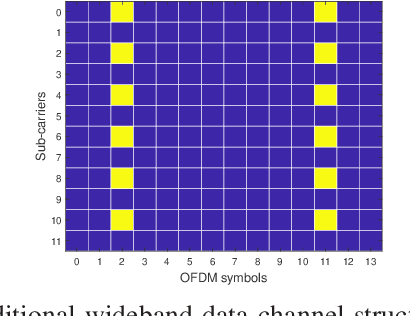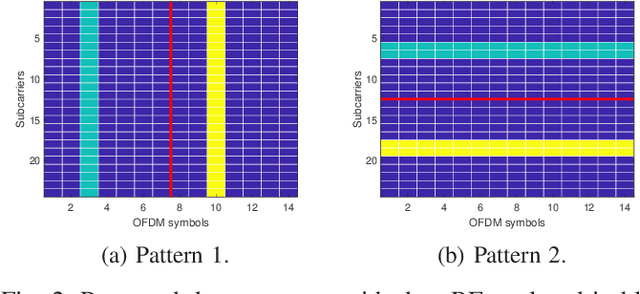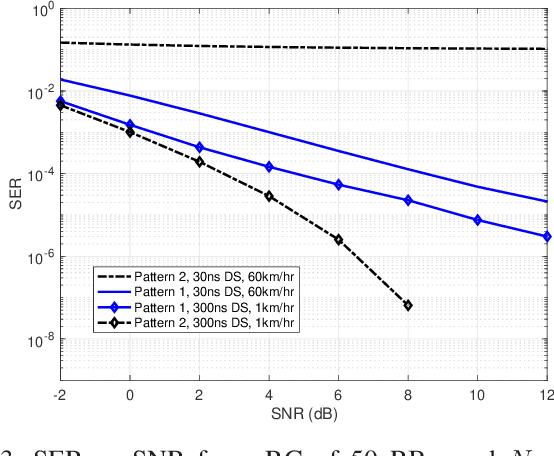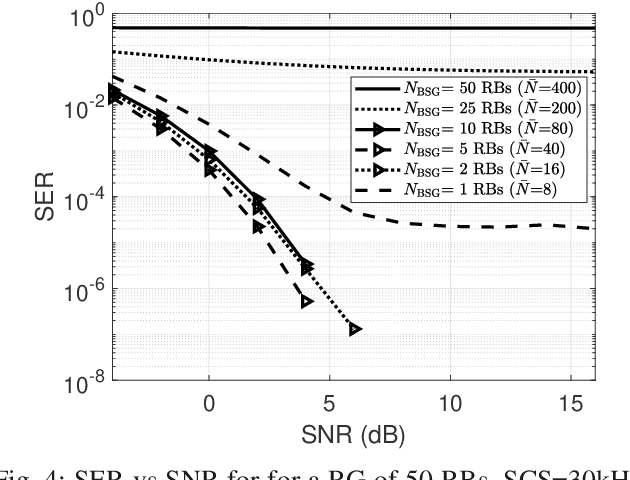Philip Pietraski
Experimental Demonstration of Over the Air Federated Learning for Cellular Networks
Mar 09, 2025



Abstract:Over-the-air federated learning (OTA-FL) offers an exciting new direction over classical FL by averaging model weights using the physics of analog signal propagation. Since each participant broadcasts its model weights concurrently in time and frequency, this paradigm conserves communication bandwidth and model upload latency. Despite its potential, there is no prior large-scale demonstration on a real-world experimental platform. This paper proves for the first time that OTA-FL can be deployed in a cellular network setting within the constraints of a 5G compliant waveform. To achieve this, we identify challenges caused by multi-path fading effects, thermal noise at the radio devices, and maintaining highly precise synchronization across multiple clients to perform coherent OTA combining. To address these challenges, we propose a unified framework for real-time channel estimation, model weight to OFDM symbol mapping and dual-layer synchronization interface to perform OTA model training. We experimentally validate OTA-FL using two relevant applications - Channel Estimation and Object Classification, at a large-scale on ORBIT Testbed and a portable setup respectively, along with analyzing the benefits from the perspective of a telecom operator. Under specific experimental conditions, OTA-FL achieves equivalent model performance, supplemented with 43 times improvement in spectrum utilization and 7 times improvement in energy efficiency over classical FL when considering 5 nodes.
SignCRF: Scalable Channel-agnostic Data-driven Radio Authentication System
Mar 21, 2023



Abstract:Radio Frequency Fingerprinting through Deep Learning (RFFDL) is a data-driven IoT authentication technique that leverages the unique hardware-level manufacturing imperfections associated with a particular device to recognize (fingerprint) the device based on variations introduced in the transmitted waveform. The proposed SignCRF is a scalable, channel-agnostic, data-driven radio authentication platform with unmatched precision in fingerprinting wireless devices based on their unique manufacturing impairments and independent of the dynamic channel irregularities caused by mobility. SignCRF consists of (i) a baseline classifier finely trained to authenticate devices with high accuracy and at scale; (ii) an environment translator carefully designed and trained to remove the dynamic channel impact from RF signals while maintaining the radio's specific signature; (iii) a Max-Rule module that selects the highest precision authentication technique between the baseline classifier and the environment translator per radio. We design, train, and validate the performance of SignCRF for multiple technologies in dynamic environments and at scale (100 LoRa and 20 WiFi devices). We demonstrate that SignCRF significantly improves the RFFDL performance by achieving as high as 5x and 8x improvement in correct authentication of WiFi and LoRa devices when compared to the state-of-the-art, respectively.
Unsupervised Learning for Pilot-free Transmission in 3GPP MIMO Systems
Feb 04, 2023



Abstract:Reference signals overhead reduction has recently evolved as an effective solution for improving the system spectral efficiency. This paper introduces a new downlink data structure that is free from demodulation reference signals (DM-RS), and hence does not require any channel estimation at the receiver. The new proposed data transmission structure involves a simple repetition step of part of the user data across the different sub-bands. Exploiting the repetition structure at the user side, it is shown that reliable recovery is possible via canonical correlation analysis. This paper also proposes two effective mechanisms for boosting the CCA performance in OFDM systems; one for repetition pattern selection and another to deal with the severe frequency selectivity issues. The proposed approach exhibits favorable complexity-performance tradeoff, rendering it appealing for practical implementation. Numerical results, using a 3GPP link-level testbench, demonstrate the superiority of the proposed approach relative to the state-of-the-art methods.
 Add to Chrome
Add to Chrome Add to Firefox
Add to Firefox Add to Edge
Add to Edge